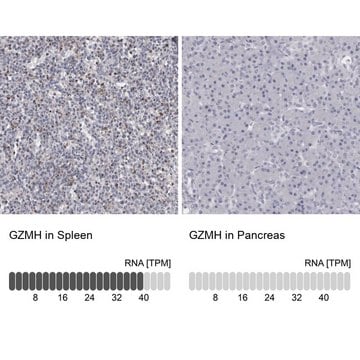ADD641C
HepaRG™ Induction Medium Supplement
Iniciar sesiónpara Ver la Fijación de precios por contrato y de la organización
About This Item
Código UNSPSC:
12352207
NACRES:
NA.71
Productos recomendados
formulario
liquid
Condiciones de envío
dry ice
temp. de almacenamiento
−20°C
Descripción general
Biopredic′s HepaRG Induction Medium Supplement with Antibiotics can be used with all HepaRG cell lines. See user guide for detailed protocols.
Información legal
Use of this product is subject to one or more license agreements.
HepaRG cells are patented and their use is strictly limited; consider the cells as a single use, disposable product that must be destroyed upon conclusion of a study or experiment. Propagating, reproducing, cloning, subcloning or any other use of the cells following the conclusion of a study is prohibited. Use of the cells to produce or manufacture commercial products for general sale or for use in the manufacture of products intended for general sale is prohibited. Transfer of the cells to anyone not employed within the same organization, whether for financial benefit or not, is prohibited. If you are unwilling to accept the terms of this LIMITED USE LICENSE, do not ORDER or use them, and immediately return the cells for credit. Violators of this Limited Use License will be prosecuted to the fullest extent of the law.
HepaRG cells are patented and their use is strictly limited; consider the cells as a single use, disposable product that must be destroyed upon conclusion of a study or experiment. Propagating, reproducing, cloning, subcloning or any other use of the cells following the conclusion of a study is prohibited. Use of the cells to produce or manufacture commercial products for general sale or for use in the manufacture of products intended for general sale is prohibited. Transfer of the cells to anyone not employed within the same organization, whether for financial benefit or not, is prohibited. If you are unwilling to accept the terms of this LIMITED USE LICENSE, do not ORDER or use them, and immediately return the cells for credit. Violators of this Limited Use License will be prosecuted to the fullest extent of the law.
HepaRG is a trademark of BioPredic International company
Código de clase de almacenamiento
10 - Combustible liquids
Clase de riesgo para el agua (WGK)
WGK 2
Punto de inflamabilidad (°F)
Not applicable
Punto de inflamabilidad (°C)
Not applicable
Certificados de análisis (COA)
Busque Certificados de análisis (COA) introduciendo el número de lote del producto. Los números de lote se encuentran en la etiqueta del producto después de las palabras «Lot» o «Batch»
¿Ya tiene este producto?
Encuentre la documentación para los productos que ha comprado recientemente en la Biblioteca de documentos.
Catherine C Bell et al.
Drug metabolism and disposition: the biological fate of chemicals, 45(4), 419-429 (2017-02-01)
Reliable and versatile hepatic in vitro systems for the prediction of drug pharmacokinetics and toxicity are essential constituents of preclinical safety assessment pipelines for new medicines. Here, we compared three emerging cell systems-hepatocytes derived from induced pluripotent stem cells, HepaRG
Maxime Demazeau et al.
International journal of pharmaceutics, 524(1-2), 268-278 (2017-04-04)
In this study, we evaluated cationic liposomes prepared from diether-NH
Anika Mann et al.
Human cell, 30(4), 267-278 (2017-05-21)
HepaRG cells are widely used as an in vitro model to assess drug-induced hepatotoxicity. However, only few studies exist so far regarding their suitability to detect the effects of drugs requiring a preceding activation via the cytochrome P450 (CYP) system.
Yi Ni et al.
Methods in molecular biology (Clifton, N.J.), 1540, 15-25 (2016-12-16)
Investigations of virus-host interactions rely on suitable in vitro cell culture systems that efficiently support virus infection. Such systems should ideally provide conditions that resemble those of natural host cells, e.g., the cell-type specific signaling and metabolic pathways. For HBV
Lindsey M Ott et al.
SLAS discovery : advancing life sciences R & D, 22(5), 614-625 (2017-03-28)
Drug-induced liver injury (DILI) and drug-drug interactions (DDIs) are concerns when developing safe and efficacious compounds. We have developed an automated multiplex assay to detect hepatotoxicity (i.e., ATP depletion) and metabolism (i.e., cytochrome P450 1A [CYP1A] and cytochrome P450 3A4
Nuestro equipo de científicos tiene experiencia en todas las áreas de investigación: Ciencias de la vida, Ciencia de los materiales, Síntesis química, Cromatografía, Analítica y muchas otras.
Póngase en contacto con el Servicio técnico




